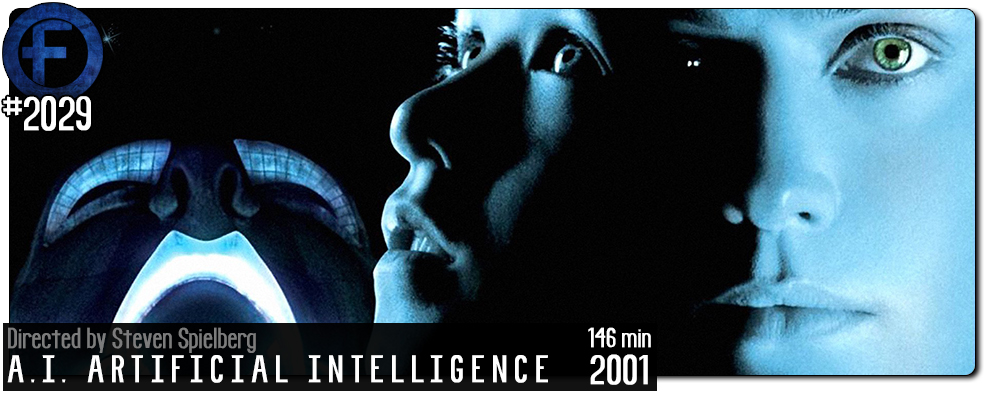Movie Review – A.I. Artificial Intelligence
Principal Cast : Haley Joel Osment, Jude Law, Frances O’Connor, Sam Robards, Jake Thomas, William Hurt, Brendan Gleeson, Jack Angel, Ken Leung, Enrico Colantoni, Paula Malcolmson, Ashley Scott, Adrian Grenier, Robin Williams, Ben Kingsley, Chris Rock, Meryl Streep, Erik Bauersfeld.
Synopsis: A highly advanced robotic boy longs to become “real” so that he can regain the love of his adoptive human mother.
********
You know what’s weird? That I remember this film more for being almost instantly outdated following the events of 9/11 less than three months after the film’s cinematic release than I do for the quality of the storytelling. Notable at the time as one of the films discussed for an awkward depiction of the World Trade Centre still standing in the remains of a future New York City, not to mention the still-piercing passing of legendary director Stanley Kubrick, whose fingerprints are all over this project, AI Artificial Intelligence is a ruminative, speculative and vastly intelligent film from Steven Spielberg, made during his early 2000’s “Blue Period” (in which Minority Report, War of The Worlds, and to a lesser degree Munich all offer a more melancholy tone from the typically blockbusting director, and remains an enduring curiosity.
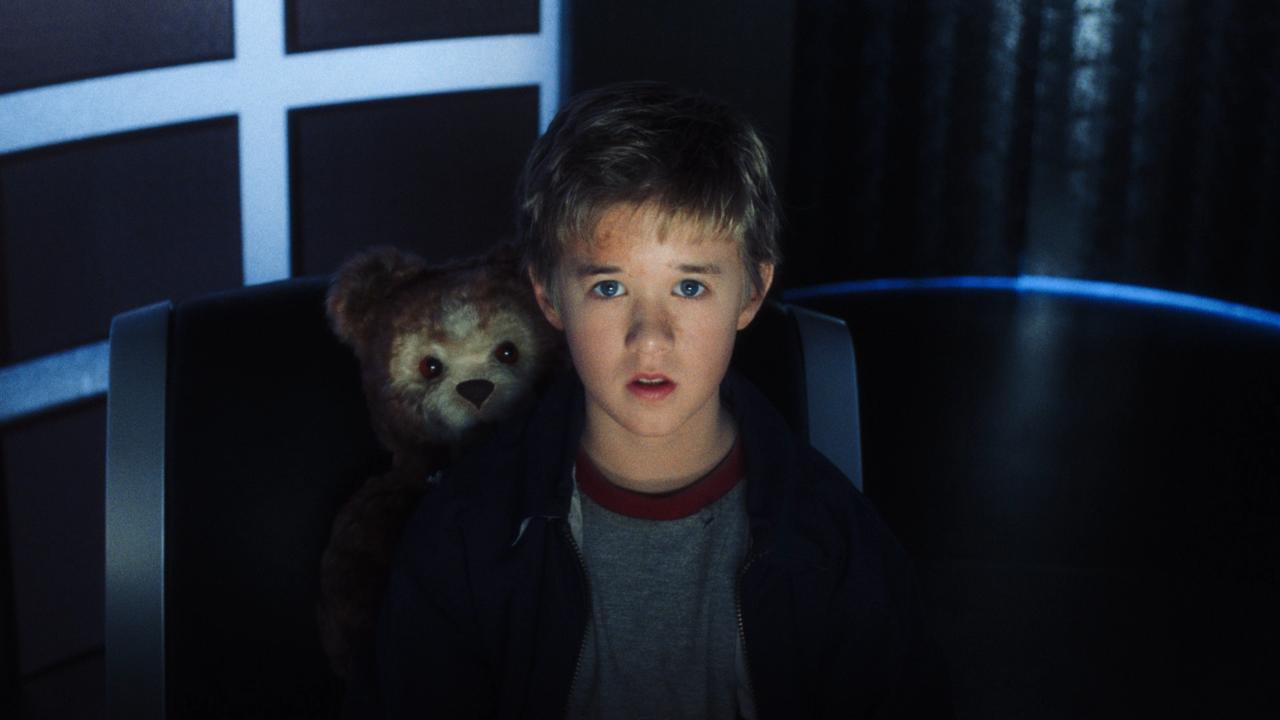
In a distant future, following the global warming catastrophe that essentially resets humanity and spurs the development of robotic “mecha” lifeforms across the globe, a young family, beset by grief over the comatose state of their young son Martin (Jake Thomas), are gifted a prototype new robot model by the philanthropic Professor Allen Hobby (William Hurt) at a wealthy conglomerate. The mother, Monica (Frances O’Connor) uses the childlike robot, named David (Haley Joel Osment – The Sixth Sense) to fill the void left by her alive but absent son, and even activates the imprinting protocol whereby the small mecha will forever be attached to her, no matter how long she lives. After an initial few bumps and emotional scrapes, Monica and her husband Henry (Sam Robards) come to love David in their own way: that is, until Martin awakens from his coma and returns home. Monica, wanting to dispel the guilt of having a robotic son, dumps David in a distant forest – together with his sentient teddy bear (voiced by Jack Angel) and accompanied by an on-the-run Lover Robot, Joe (Jude Law), David makes his way across the country to find the mysterious Blue Fairy, who will grant his wish to become a real boy and finally earn the love of his mother.
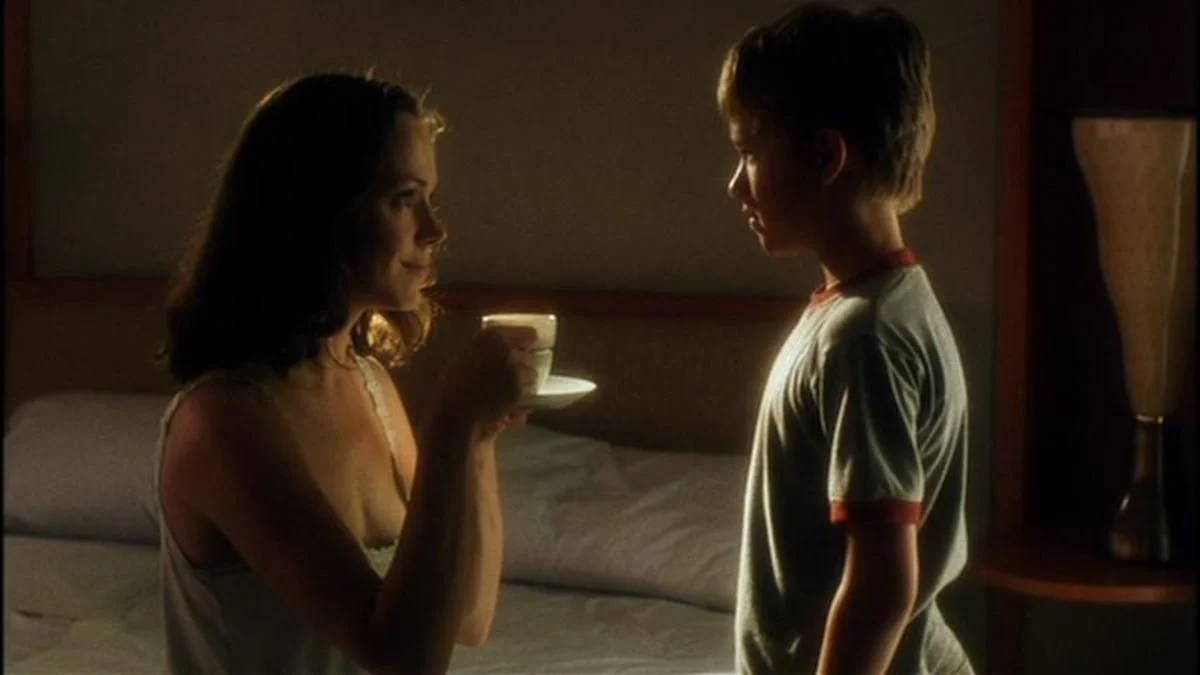
Following the sudden death of Stanley Kubrick just prior to the release of Eyes Wide Shut in 1999, director Steven Spielberg decided to honour the late filmmaker by taking up the reins of their long-in-development sci-fi project, based on Brian Aldiss’ short story “Supertoys Last All Summer Long”, written in 1969. Kubrick has been developing the film to direct under Spielberg’s producer shingle, before his untimely passing; Spielberg felt the story warranted telling and so took on the director role himself – the end result is dedicated to Kubrick – and apes Kubrick’s style considerably despite putting his own flourishes on the material. Lensed by long-time Spielberg cinematographer Janusz Kaminski, and populated with a stellar cast, including the then white-hot Haley Joel Osment, AI Artificial Intelligence is both a sci-fi fairy story and hugely allegorical narrative that questions the idea of love, emotion, and humanity through the eyes of a creation borne of human hands: a robot. Echoing elements of the great sci-fi writers of the 20th Century, including Asimov and Arthur C Clarke, Spielberg’s film does feel somewhat antiseptic to its characters but offers complexity of subtext to what is at times an overly sentimental, often star-struck director at full power.
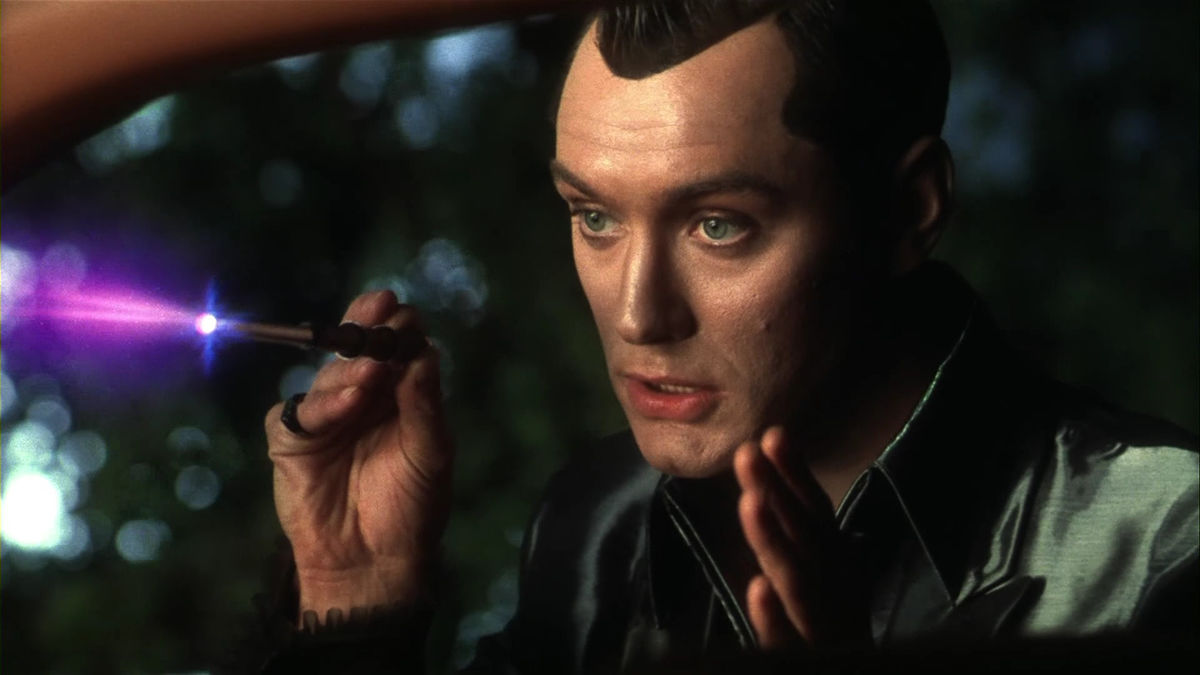
Borrowing a lot from sci-fi tropes and fashioning them into a bizarrely contemporary take on a far future time, AI Artificial Intelligence is a film asking more questions than it can possibly answer. Speculative fiction such as this, in which we’re asked to believe a robot can achieve some semblance of sentience and genuinely “love” a human being in the true sense of the word, is a long bow to draw compared to other flights of genre fantasy, but there’s an honesty and integrity to the story and characters, particularly with the involvement of Osment’s innocent David, a robotic child cast aside by his adoptive parents to make a long journey of discovery – nay, an obsession – to try and become a “real boy”. The themes within AI Artificial Intelligence are deeply rooted in established genre fiction and have been layered with Spielberg’s delicate approach to the sombre material, often facilitated by the film’s still-great visual effects, and I think with both the style the director brings to the film together with some captivating performances (especially from Frances O’Connor) makes for compelling, if not always rewarding viewing. The film’s structure forms a typical three-act narrative. The first, in which David comes to the Swinton family through great personal tragedy, before being the object of much conflict within the household, establishes the inciting incident as an emotional once, making the resolution a far more complicated matter. Emotional wrangling, particularly for a character searching for his own sense of humanity and understanding of Oneself, is difficult terrain to navigate for this kind of sci-fi at the best of times, and I think Spielberg, together with credited screenwriter Ian Watson, delivers intriguing if not always fruitful entertainment.
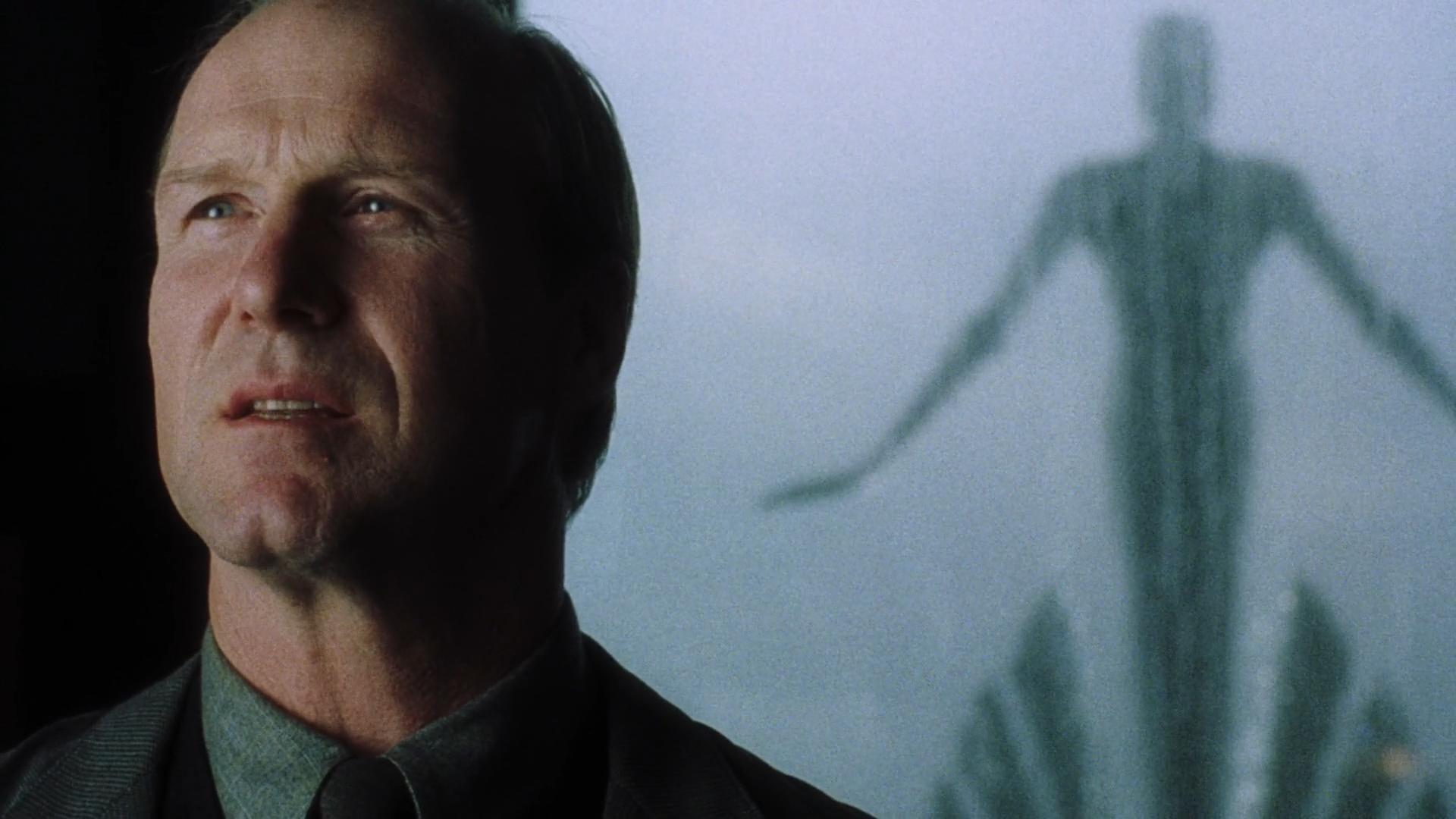
The second act of the film is dominated by David’s quest to find Blue Fairy, which leans heavily into the “Pinocchio” motif referenced throughout the movie. In truth, this callback to Carlo Collodi’s famous magical puppet, who himself searches for a way to become a real boy and earn his creators love, is a touch overbearing, and the reference’s to the legacy text do become wearying after the umpteenth time depicted. The addition of Jude Law’s sex robot Gigolo Joe, complete with plastic hair and ability to play any smooth music track he likes, is an allusion to the fantasy of man’s imagination and analogous of our ability to degenerate almost any great thing to our primal, base desires. The world of “mecha” is largely played as subservient to mankind, illustrated most keenly by the crass and Thunderdome-esque “Flesh Fair” in which David and Joe, together with Teddy, are trapped and nearly executed by a ravenous crowd of machine-hating humans. The Fair’s ringmaster, who perceives all mecha as evil and the root cause of mass human unemployment (the film ostensibly refuses to refute or corroborate this claim), is a leering, virulent purveyor of indignities on ageing mech, drowning poor cast-off robots in acid, ripping them apart, defenestrating them or annihilating them with other cruel and unusual punishments. The Fair is depicted much like the Roman colosseums of old, although in this case the gladiators are made of metal and there is absolutely no Spartacus.

The third act, which comes after Joe and David locate the eponymous Blue Fairy, is set some 2000 years after the indeterminate date of the previous two, when Earth has transformed into a ball of ice and alien creatures – sentient robots – are archeologically digging the remains of a now extinct humanity from the frozen landscape. It is at this point that the film transcends mere science fiction and moves, perhaps unfortunately, into pure Spielbergian schmaltz, with a prolonged epilogue seeing David’s journey to becoming a real boy climaxing with a reunion with his long-dead “mother”, Monica. It’s a surprisingly esoteric conclusion to a fairly standard story of robotic innocence stripped bare, and I really felt the third act – comprising a good twenty minutes or more of the end of the film – is a complete misstep despite some admittedly decent visual effects. The melancholy mood of the preceding two hours ends on what I think would have been a decent, if unremarkable ending, with David and teddy wedged beneath a flooded Coney Island ferris-wheel, staring at a plastic model of a blue fairy, pleading with her to turn him into a real boy, until his battery gives out. Had the film ended there, I’d have thought the film to be a minor classic of sci-fi brutalism and a swift gut-punch to the audience. With Spielberg’s conspicuously “happy” resolution for an ending, AI Artificial Intelligence removes a lot of the.. well, intelligence from the subtext of the film and reaches into a grab bag of hokey genre clichés to produce a less dour finale. For a film dealing with such heavy intellectual material about love, feelings and emotion, to ask us to suddenly forget all that and look at the cool aliens and how they brought Monica back to life for a bit seems like a cop-out.
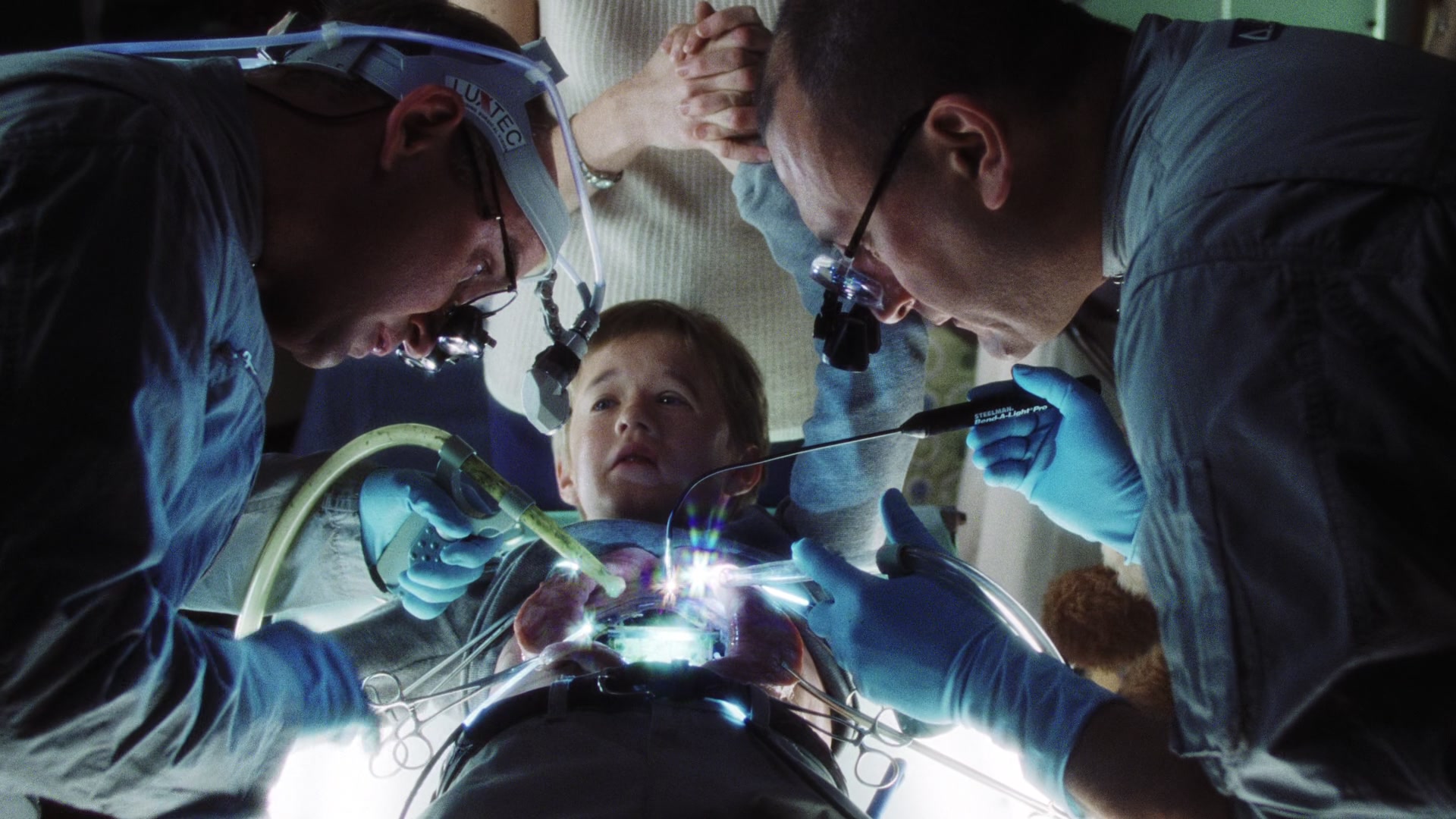
Strongly holding this film together is the work of three performances in particular. Haley Joel Osment, as David, is superb. His robotic and even mannered work as David is remarkable for a performer so young, although we shouldn’t be surprised considering his proven screen acumen coming off The Sixth Sense and Pay It Forward. Osment’s manages to eke out some spectacular emotional heft for a character unable to display any, often reacting via algorithm instead of genuine human emotion. His rapport with Teddy, a delightfully Spielbergian flourish of CG and practical work voiced by Jack Angel, is at the heart of the film’s stunning create effects work, while Jude Law’s scallywag Gigolo Joe, an aphorism-affected amalgam of Fred Astaire, Gene Kelly, and an honest-to-goodness Golden Age of Cinema silhouette, is a standout sidebar character whose role isn’t clearly defined within the overall context of the movie. Law seems to be having a blast, though, and I loved his work, with it forming the second pillar of AI Artificial Intelligence’s thespian prowess. The third, and perhaps most informative, is Australian actress Frances O’Connor, as Monica, who serves a pivotal role as David’s adoptive mother. O’Connor is absolutely flawless as the grief-stricken mother of Martin who is forced to confront her torment in the form of David; initially resentful and fearful, she soon comes to love David in her own way, although once the comatose Martin arrives back on the scene her humanity soon surfaces enough to enable her to dump David off in the woods. But it’s not a one-note role, it’s a carefully constructed and beautifully performed work of matriarchal despair and conflicted emotional fugue-state distress, and although conveying the affection for David as a robot isn’t the film’s strongest aspect I think O’Connor sells the arc perfectly. The scene in which she skips off on David is shattering, and I doubt Osment or O’Connor have been better than that moment.
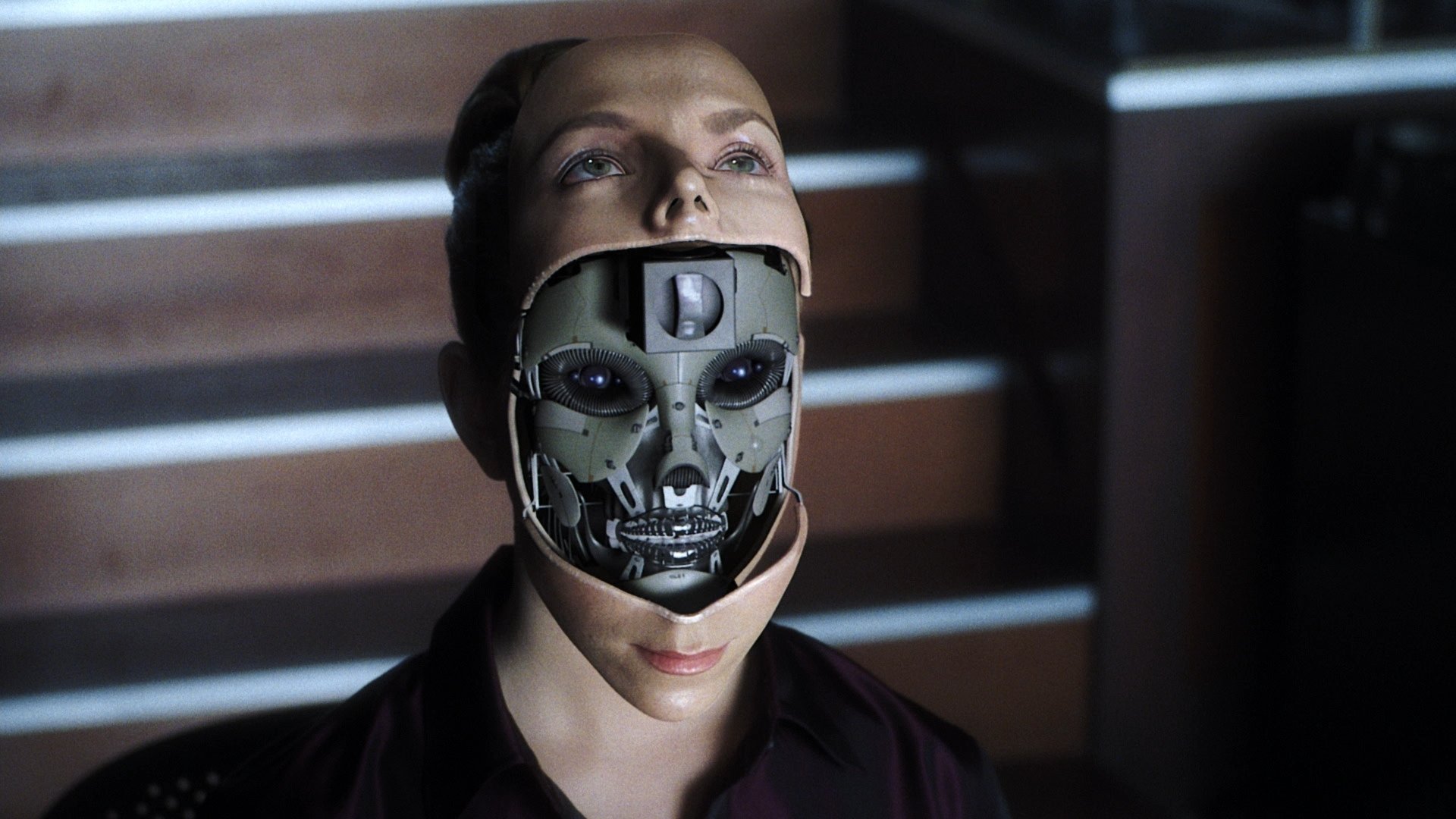
Notable appearances in the film also include William Hurt as the professor responsible for David’s creation: initially seen as having philanthropic motivations we come to learn that the David robot is actually a replication of his own dead son, a way for the Professor to grieve his loss whilst hopefully benefitting others in his situation. Hurt’s Professor Hobby is an enigmatic and obviously polarising figure in the canvas of the film, and the instigator for the entire movie in many ways, although he only appears early on and in a brief coda at the end of the second act. Brendan Gleeson plays the ringmaster of the Flesh Fair but it’s a role designed with a singular element of demagoguery, and lacks width enough for the actor to sink his teeth into. A young Entourage star Adrien Grenier pops in briefly as a teenager, Enrico Colantoni has about two whole lines of dialogue as a murderous husband encountered by Joe, and voice artist Ashley Scott plays a robotic sex worker colleague of Joe’s, Gigolo Jane, in a single shot of the movie. A couple of celebrity voices, including Chris Rock, Robin Williams, and Meryl Streep, populate the mecha world, although they’re fleeting indeed.
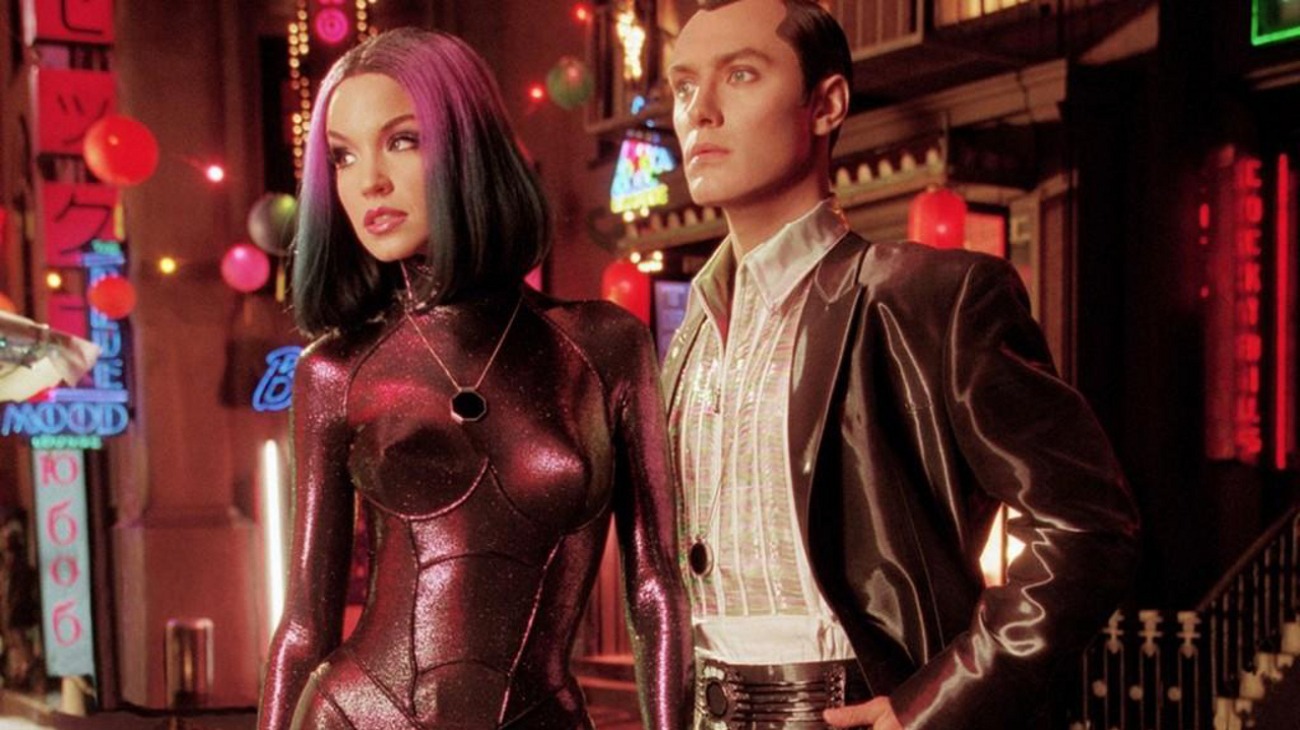
At over two and half hours, AI Artificial Intelligence definitely outstays its welcome. The film is long and often quite slow, which wouldn’t be a problem had the story or characters been more agreeable. Working within the confines of such heady, esoteric material means maintaining audience interest and I’ll be honest, I did look at my phone a few times rewatching this. Had the entire third out-of-the-ice act been excised, or the film’s pacing in act two been tightened considerably, the film might have had a stronger impact with its deadpan (some might suggest heavy-handed) tone and heavily stylised visuals. That Spielberg deploys copious VFX, some noticeable, some well hidden, is about the only thing that maintained my interest, because quite frankly the impenetrable emotional weight of the story felt at times like an anchor around the throat of this thing. You can see what Spielberg was going for here, and he ably apes a Kubrickian coolness to the storytelling which keeps the audience at a distance anyway, but it prevents us from attaching too much to any of the characters within the story. The icy blue cinematography and blurry, soft-focused lighting design facilitate the feeling of a “fairy story” such as it exists within the film’s storyline, and the use of specific mecha-effects with CG and blue-screen work are remarkably pristine even by today’s standards. But the aesthetic, whilst stylish, neuters the humanity from what is, at its core, a story about a robot searching for that very thing.
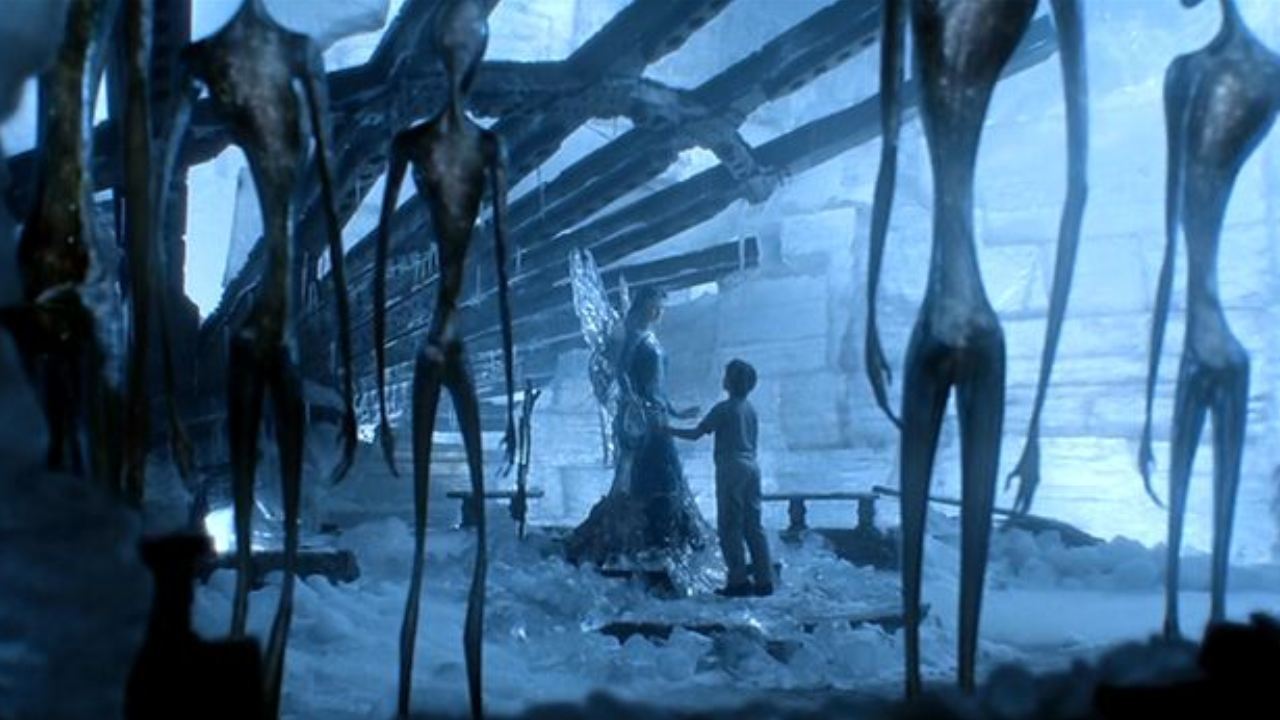
AI Artificial Intelligence is a curiously inert piece of filmmaking. It has all the usual Spielberg flourishes, is technically superbly mounted, and is carried by some terrific central performances across two hours of science fiction headiness many audiences will struggle to contend with. Yet, for all this aspirational excellence, the film is an effortful watch, a slowly meandering meditation on material the genre has gone back to time and again through countless iterations of similar introspection. It’s not a bad film, just not a very entertaining one. It’s got a lot of good stuff buried within, and if you are an intellectual hung up on the rise of sentient robots no doubt this one is high on your favourites list, but digging through the remains of a post-apocalyptic civilisation to locate an old Italian fairy story isn’t quite the sojourn into human reflection you think it is.

